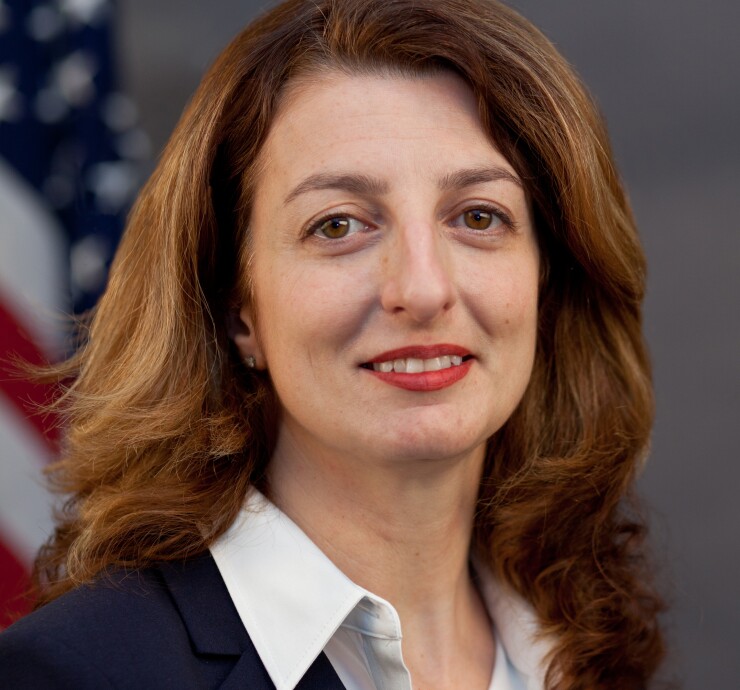
NEW ORLEANS - The Securities and Exchange Commission's enforcement division is contacting dealers who reported their own possible violations of securities laws under a voluntary enforcement program initiated last year, giving them two weeks to decide if they still want to take advantage of the lenient settlement terms.
LeeAnn Gaunt, chief of the enforcement division's municipal securities and public pensions unit, updated bond lawyers on the progress of the Municipalities Continuing Disclosure Cooperation initiative during a panel at the National Association of Bond Lawyers' Tax and Securities Law Institute here.
Much of the discussion in multiple panels focused on the MCDC, a program launched last year to allow both issuers and underwriters to voluntarily report, for any bonds issued during the last five years, any time they misled investors about their compliance with their continuing disclosure obligations. Underwriters had to report by Sept. 10 and issuers by Dec. 1 last year.
While declining to offer a time frame or the number of participants in the program, Gaunt said the market can expect to see a wave of settlements with dealers first because the SEC received their submissions before issuers and has had longer to investigate them. Gaunt asked attorneys in the room to raise their hands if they had clients who self-reported, and many indicated that they did.
"We are confirming for ourselves that all of the violations you all reported are violations in our view," Gaunt said. "We are contacting dealers. Some dealers have been contacted."
Gaunt said that while the SEC is willing to discuss terms with a dealer, it will only offer two weeks for the dealer to decide if it wants to settle under the MCDC program or take its chances with a traditional enforcement action. For now, Gaunt said, the two week decision period has only been applied to dealers and not to issuers.
Gaunt said that the orders coming out of the MCDC will be about real violations and will provide some guidance on the SEC's thinking about what sorts of continuing disclosure failures it considers material. Many bond lawyers were upset after a vague settlement with King's Canyon Joint Unified School District in California last year offered little meat for lawyers to parse through.
Gaunt and Mark Zehner, deputy chief of the unit, also discussed other major recent enforcement actions with bond lawyers at the conference. Dean Pope, a partner at Hunton & Williams in Richmond, Va., who spoke on a panel, said the SEC's case against officials in Allen Park, Mich. has many public officials spooked. In January, the SEC settled with the former mayor and city administrator of the Detroit suburb for fraudulent conduct related to a failed movie studio financing. The case set a precedent by charging the ex-mayor, Gary Burtka, with being liable as a "control person" with authority over the issuer and administrator, even though he had not executed any fraudulent bond documents himself.
"This is a big case," Pope said. "It's generating, and will continue to generate, a lot of concern."
Zehner said the SEC clumps charges into primary and secondary liability. Secondary liability includes not just a control person, but also things like aiding and abetting, failure to supervise, and others, he said.
"We are fairly comfortable with, and accustomed to, bringing secondary liability claims," Zehner said.
One lawyer asked if the SEC could have chosen to bring secondary liability charges against other Allen Park officials such as the city council and simply chose not to because of the facts and circumstances there. Zehner said that was correct.
Enforcement activities were a major topic in discussions in the continuing disclosure panel at the conference as well. The MCDC was designed to stop issuers from releasing offering documents that inaccurately claim that they that they have been in compliance with their self-imposed disclosure obligations when they have not.
This approach has led to some debate about what information issuers should include in their official statements. Robert Feyer, a partner in Orrick Herrington & Sutcliffe's San Francisco office, said he had a client simply say nothing in its most recent OS because it was confident it has been in compliance for the past five years and the SEC's Rule 15c2-12 does not require an OS to say anything if the issuer is in compliance.
Rebecca Olsen, chief counsel in the SEC's Office of Municipal Securities, said OMS has coordinated closely with enforcement on the MCDC and will use what it learns from the initiative to give the office direction going forward. The Municipal Securities Rulemaking Board revealed earlier this week that continuing disclosures on its EMMA website rose sharply last year, a spike MSRB executive director Lynnette Kelly attributed partly to the MCDC.
"In my mind the MCDC has already been a tremendous success," Olsen said.
The NABL conference continues on Friday.





